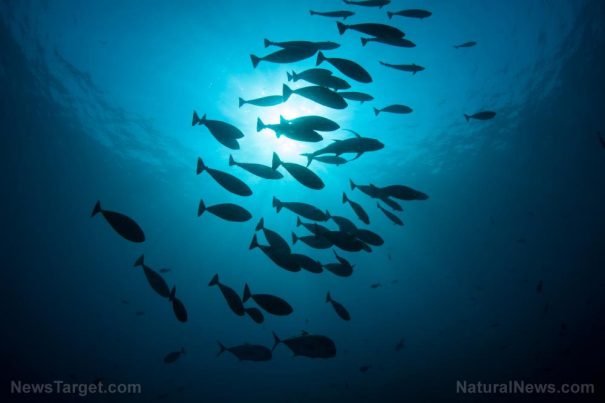
Nurturing can CHANGE nature: How mothers nurture their children can influence the formation of NEW SPECIES
Friday, May 15, 2020 by Arsenio Toledo
http://www.naturalnewsresearch.com/2020-05-15-nurturing-can-change-nature-formation-of-new-species.html

Researchers from the University of California, Riverside (UC Riverside) have shown that the way animal mothers nurture their offspring can influence how they develop, and can even influence how fast a new species develops.
The study, which was published in the journal Nature Communications, studies more than 170 species from the Poeciliidae family of freshwater fish, the most famous of which is the guppy (Poecilia reticulata). The research team was led by David Reznick, a professor of biology at UC Riverside who has spent years studying the Poeciliidae family of fish.
Reznick believed that the way guppy mothers nurture their young can influence the evolution of male traits. He was inspired to test out this hypothesis when he saw guppies in a fish store. All the fish that were for sale, he noticed, had similar traits.
“The fish I saw that day all belong to the Poeciliidae family, which give birth to live young, rather than lay eggs. Some of them even have placentas, like mammals,” said Reznick. “The ones offered for sale were only species with colorful males and all of those species had mothers that lack placentas. I wanted to know how having this type of mother might relate to the evolution of male traits.”
Stark difference between fish with placentas and those without
Reznick and his team set about constructing a family tree using the DNA they gathered from more than 170 species of Poeciliidae. Afterwards, they mapped male and female traits that they observed onto the tree and tried to reconstruct how male and female traits evolved throughout the Poeciliidae family.
In their research, Reznick and his team found that when the fish evolved placentas, it changed how they pick potential mates. For the fish that didn’t have placentas, choosing a mate was a lot trickier.
According to Reznick, the mothers who didn’t have placentas have already invested a lot into their eggs, even prior to fertilization. This makes the mothers “picky” about the partners they choose. (Related: Immune system intelligence: Your biochemistry “morphs” to defend against new parasites.)
Meanwhile, for the fish who did have placentas, there was a stark difference. In those kinds of species, the eggs were smaller and the mother didn’t invest a lot into them. Furthermore, a mother with a placenta is able to choose who the father of the eggs will be after mating, as she can influence whose sperm fertilizes the eggs. She can even choose to abort the eggs if she doesn’t want them.
Presence of placentas also altered the males
Upon analysis of the DNA tree Reznick and his team made, they found that the females who had placentas were more sexually active, and their male counterparts were a lot less competitive. These males were less colorful and did not dance during courtship. In contrast, the researchers found that the mothers without placentas gave rise to more colorful males who were more likely to dance during courtship.
Reznick and his team also found that there was a strong connection between the way mothers would nurture their offspring and whether or not a new species would form.
In their study, Reznick and his team found that the fish species that had “fancier” males formed new species twice as fast as the species that had plainer-looking males. This, according to the team, heavily suggests that the way these fish are nurtured by their mothers influences the development of new species.
Reznick further argues that while this research was limited in its scope to one family of fish, its underlying principles may be applied through the entire animal kingdom. He expects that future research will be able to show that these same connections can be discovered.
Sources include:
Tagged Under: Tags: animal research, animal science, animals, aquarium fish, Ecology, environment, Evolution, fish, goodscience, guppy, marine life, oceans, pet fish, Poeciliidae, research, wildlife
RECENT ARTICLES


Scientists discover a reason for pain: Nerve endings in your skin help fight skin infections

Coffee versus matcha: Which gives you better sleep? (Yes, sleep)
By Zoey Sky

Earth’s magnetic field over the South Atlantic is WEAKENING and scientists aren’t entirely certain why

Researchers explain how an unhealthy and inflamed gut can make breast cancer spread more quickly
COPYRIGHT © 2017 NATURAL NEWS RESEARCH

